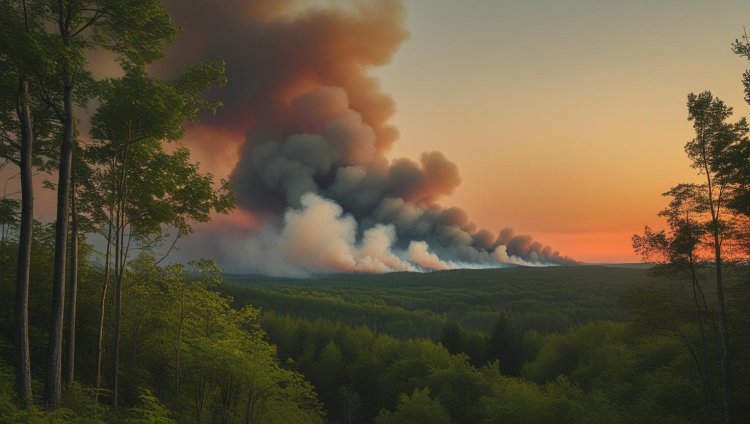Smoke from Canadian Wildfires Approaches the Northeast: What You Need to Know
Smoke from Canadian wildfires is drifting into the U.S. Northeast, impacting air quality. Learn how to stay safe and protect your health.

Smoke from the Canadian wildfires has begun to drift into the U.S. Northeast, leading to hazy skies and potential air quality concerns. While the most severe air quality issues have been reported in the Midwest, including Minnesota and Michigan, the Northeast is experiencing elevated levels of ground-level ozone and particulate matter. washingtonpost.comtimesunion.com
In New York City, the National Weather Service has issued an air quality alert for the entire tri-state area, advising sensitive individuals to limit outdoor activities between 11 a.m. and 11 p.m. Although the smoke from Canadian wildfires is present in the upper atmosphere, it is not close enough to the surface to pose a significant health risk at this time. nypost.com
Health Implications
Wildfire smoke contains dangerous pollutants, notably fine particulate matter (PM2.5), which can be inhaled and impact health even indoors. Exposure may lead to respiratory distress, exacerbate asthma, irritate eyes and sinuses, and in severe cases, contribute to heart attacks, strokes, cognitive impairments, and lung cancer. Vulnerable groups include older adults, pregnant individuals, young children, and those with pre-existing heart or lung conditions. washingtonpost.com
Protective Measures
To safeguard your health during periods of poor air quality:
-
Monitor Air Quality: Use resources like AirNow.gov to stay informed about current air quality levels in your area.washingtonpost.com
-
Limit Outdoor Activities: Especially for sensitive groups, reduce time spent outdoors when air quality is poor.nypost.com
-
Use Air Purifiers: Employ high-efficiency particulate air (HEPA) filters indoors to reduce indoor pollution levels.
-
Wear Masks: If you must be outdoors, wearing a properly-fitted NIOSH-approved N95 or P100 mask can help filter out harmful particles.washingtonpost.com
-
Keep Windows Closed: Prevent outdoor air from entering your home by keeping windows and doors closed.
Long-Term Considerations
The increasing frequency and intensity of wildfires, exacerbated by climate change, suggest that such air quality events may become more common. Communities should consider investing in infrastructure and public health initiatives to better prepare for future incidents.













